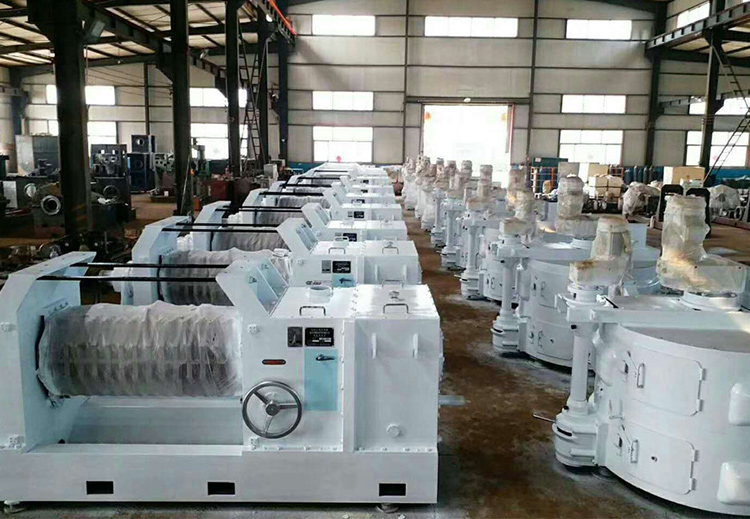Nov . 20, 2024 07:44 Back to list
seed oil extraction machine
The Importance of Seed Oil Extraction Machines in Modern Agriculture
In recent years, there has been a notable rise in the demand for natural and organic products, particularly in the food and cosmetics industries. As a result, the extraction of seed oils has become an essential agricultural process. Seed oil extraction machines are at the forefront of this trend, providing significant advantages in efficiency, sustainability, and product quality.
Seed oils, derived from various seeds such as sunflower, canola, and sesame, are rich in unsaturated fats, vitamins, and antioxidants. These oils are not only utilized for culinary purposes but also play a vital role in making cosmetics and health supplements. The extraction process involves crushing the seeds to release the oil contained within, and modern machines have revolutionized how this is done.
Traditional methods of oil extraction often involved labor-intensive manual processes that yielded low quantities of oil. In contrast, seed oil extraction machines utilize advanced technology to maximize oil yield while minimizing waste. These machines are designed to extract oil through mechanical pressing or solvent extraction methods. Mechanical presses are popular for their efficiency and ability to produce high-quality oil without the use of chemicals, ensuring that the oil retains its natural properties.
One of the critical advantages of using seed oil extraction machines is their efficiency. Modern extraction machines can process large quantities of seeds in a short amount of time, making it feasible for both small-scale farmers and large commercial operations. This efficiency translates to lower production costs and the ability to meet growing consumer demands. Furthermore, many of these machines are designed to operate with minimal energy consumption, aligning with sustainable farming practices that are increasingly important in today's eco-conscious market.
seed oil extraction machine

The versatility of seed oil extraction machines is another noteworthy aspect. These machines can be adapted to extract oil from a wide variety of seeds, each with its unique oil profile. This adaptability allows manufacturers to diversify their product offerings and cater to different market segments. For instance, a single machine can switch between extracting oil from sunflower seeds, flaxseeds, and peanuts, all while ensuring the integrity and quality of the final product.
Moreover, as consumers become more aware of the origins of their food, the transparency that these machines offer is invaluable. With modern seed oil extraction technology, producers can easily monitor the extraction process, ensuring that the oils are produced under clean and sanitary conditions. This traceability helps enhance consumer trust, which is crucial in a market where consumers are increasingly motivated by health and ethical considerations.
Another significant aspect is the role of education and training in the successful implementation of seed oil extraction machines. For farmers and manufacturers to maximize the benefits of these machines, they must be trained in their operation and maintenance. Furthermore, understanding the best practices for seed selection and storage can greatly influence the quality of the extracted oil. Sustainable farming techniques that focus on organic seed cultivation also play a significant role in enhancing the overall quality of the final product.
In conclusion, seed oil extraction machines are pivotal in meeting the increasing global demand for high-quality seed oils. Their efficiency, adaptability, and commitment to sustainability make them an essential investment for modern agricultural practices. As the industry continues to evolve, the importance of these machines will undoubtedly grow, paving the way for healthier products that benefit both consumers and producers alike. By embracing technology alongside traditional agricultural practices, we can ensure a vibrant and sustainable future for the seed oil industry.
-
High-Efficiency Peanut Oil Refined Machine for Quality Oil Production Leading Exporters & Companies
NewsJul.08,2025
-
High Efficiency Sunflower Seed Oil Press – Leading Cooking Oil Press Machine Factories & Suppliers
NewsJul.08,2025
-
High-Efficiency Soybean Oil Press Machine – Leading Exporters & Reliable Companies
NewsJul.07,2025
-
High-Efficiency Seed to Oil Extractor – Reliable Extraction Machinery for Your Business
NewsJul.07,2025
-
High-Quality Pressing Screw of Oil Expeller for Efficient Oil Extraction Leading Exporters & Manufacturers
NewsJul.06,2025
-
High-Efficiency Essential Oil Extraction Machine Trusted Exporters & Companies
NewsJul.06,2025
